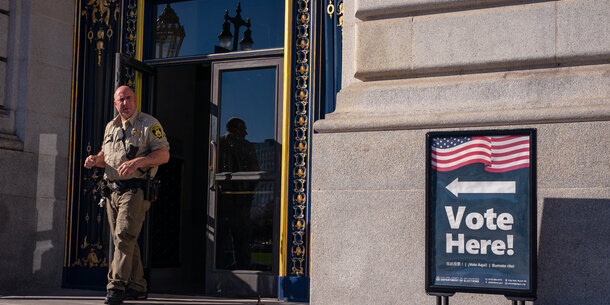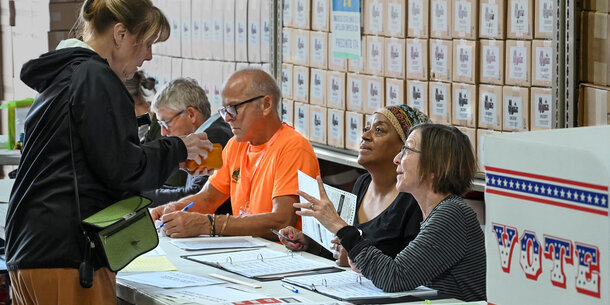This originally appeared in the New York Daily News.
New York’s voters have come to expect the city’s Board of Elections to bungle some aspect of election administration every cycle. This week, the BOE lived up to that reputation when the agency failed to exclude approximately 135,000 test ballots from Tuesday’s vote tabulation for the mayoral primary.
Voters can rest assured that the system’s paper ballots and other security measures mean that there is a record of their choices and that the final vote count will be accurate. But this most recent error makes the need for reforming the agency all the more urgent.
Of course, former President Trump and other purveyors of the Big Lie are spinning the incident as evidence of their false claims about U.S. elections. The truth is that the trouble at the BOE is a New York City problem that state lawmakers can fix. The NYC BOE’s latest blunder is not a reason to doubt the stability of U.S. election systems — but it is a reason for New York’s elected leaders to start taking concrete steps, now, to promote greater accountability, transparency and professionalism.
Year after year, the NYC BOE has provided deficient voter service and built up a long track record of failures, including the 2016 voter purge, widespread machine meltdowns in 2018, and last year’s long lines and high absentee ballot rejection rate. Each time, the agency picks itself up, dusts itself off and moves on without making meaningful changes.
The BOE’s failure to serve voters can be traced back to its structure and practices. Its leadership structure is convoluted: 10 commissioners from five counties split across the two major parties. They are nominated by county party operatives who are not accountable to the public. They are chosen based on political connections, not qualifications, and are rubber-stamped by the City Council, despite recent efforts by individual councilmembers to have more transparent confirmations. An external accountability structure spread across state and city officials, whose respective oversight powers are underutilized, further enables the agency to dodge consequences for underperformance.
This lack of accountability trickles through the agency’s ranks. While there are certainly many hardworking staffers at the BOE who want to run elections well, these structural issues undermine their efforts. It is well-documented that staff throughout the are hired for their political and personal connections. Except for a small pool of technical staffers, job openings are filled behind closed doors without public advertisement. In 2013, the city’s Department of Investigation issued a report calling for greater transparency in the hiring process, apparently to no avail.
What’s more, the NYC BOE’s perennial mistakes reflect internal operational failures to anticipate election issues and prepare accordingly. Preventable problems — like excessive wait times, inaccessible poll sites and inadequate language interpretation services — persist election to election. With the information the board presumably has access to about when, where and how voters vote, these issues that present hurdles to the ballot can and should be avoided.
Lawmakers and advocates across the state urge that a serious overhaul of the agency will be necessary to turn things around in New York City. Large-scale structural change would require a state constitutional amendment. That process, which involves passage in two consecutive Legislatures and the approval of voters in a ballot referendum, would take several years and great political will but merits serious consideration.
In the nearer term, there are common-sense changes, including steps that other, more effective elections jurisdictions across the country rely on, that would present important strides forward in strengthening administration at the NYC BOE. To name just a few: The hiring process should be brought out in the open, including public job postings for staff positions and national searches for the most senior staff. Hands-on, practical trainings, including for poll workers, should be improved and responsive to commonly reported problems. Data transparency requirements should be strengthened to both support the agency’s planning efforts and facilitate public analyses of its performance.
In a city that serves more than 5.5 million registered voters — more registered voters than most U.S. states — we should be setting a national standard. We are not. This is a tired pattern: The NYC BOE makes a major mistake. Lawmakers, voters and advocates call for reform. Then nothing happens.
Let’s break that cycle.




